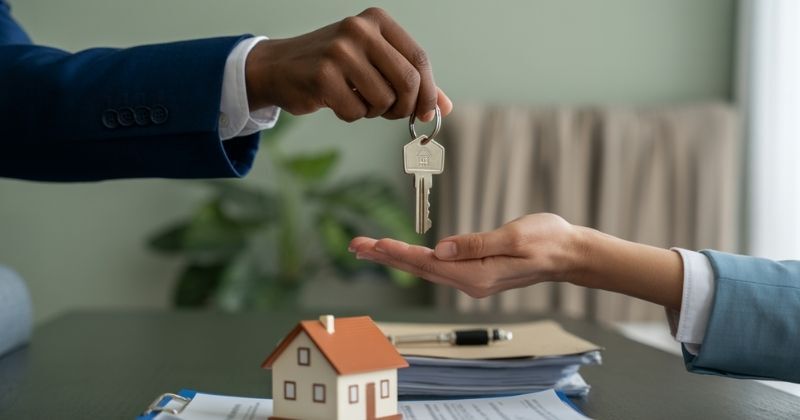
Buying a second property in South Africa is a practical way to build wealth, support lifestyle changes, or secure future housing. While the legal process is similar to your first purchase, there are key financial differences to consider. Stricter affordability checks, larger deposits, and added costs mean second-time buyers need to plan carefully. Whether you’re investing in a rental, preparing for retirement, or buying a holiday home, it’s important to understand the steps and responsibilities before proceeding.
Key Takeaways
- Second-time buyers face tighter financial scrutiny: While the legal process of buying a second property is the same as the first, banks apply more thorough affordability checks due to the borrower’s existing bond commitments.
- A second property can serve different financial goals: South Africans often buy second homes for investment income, retirement planning, or holiday use. Each purpose affects the choice of property, location, and expected running costs.
- Financing options depend on your existing equity and income: Buyers can fund their second home through a cash purchase, access bonds, further advances, second bonds, or personal loans, but higher deposits and slightly increased interest rates are often expected.
About Arcadia Finance
Get access to a loan the easy way through Arcadia Finance. Choose from 19 NCR-compliant lenders and pay no application fees. Benefit from a simple, transparent process that delivers loan options you can rely on.
Is It Easier or Harder to Buy a Second Property in South Africa?
Purchasing a second property in South Africa in 2025 follows the same legal framework as your initial home purchase, but it can present greater financial challenges.
The legal procedure remains unchanged. You will still go through the standard conveyancing process, sign comparable legal documents, and consult with familiar professionals such as estate agents and attorneys. The key difference is that financial institutions now scrutinise your financial health more thoroughly, particularly because you already have an existing bond commitment.
As of June 2025, the South African property sector is showing early signs of recovery, with interest rates beginning to ease following the upward trend seen between 2023 and 2024. These developments are creating a more favourable lending environment for second property purchases compared to the previous two years. While banks are becoming more open to lending, they continue to expect stronger financial credentials from individuals buying a second property.
Foreign nationals are still subject to the same 50% loan-to-value (LTV) limit as they were for their first purchase. For instance, if you wish to acquire a property valued at R2 million, you will need to contribute R1 million in cash, regardless of whether it is your second or fifth purchase within South Africa.
One of the key benefits for second-time buyers is the advantage of experience. You are already familiar with the transaction process, understand which service providers are reliable, and have a clearer sense of how to navigate the steps involved. This knowledge often helps reduce delays and gives you a stronger position when negotiating terms with sellers or estate agents.
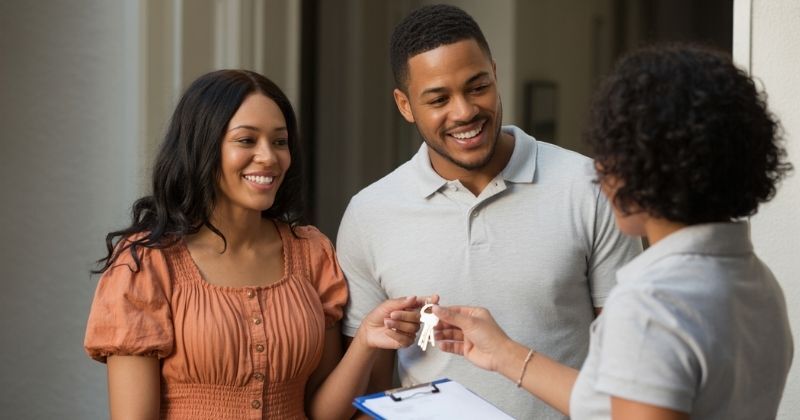
What Is Your Reason for Buying a Second Home?
Purchasing a second property in South Africa can form part of a broader financial strategy, support long-term retirement planning, or provide a change in lifestyle. Below are some of the most common motivations for buying a second home:
A Sensible Investment Opportunity
Many South Africans choose to purchase additional properties with the intention of generating income. A second home can be used as a rental property, offering a stream of earnings over time. If you are buying for investment purposes, it is usually best to set aside your personal preferences. Instead, focus on features that appeal to renters or potential buyers. This might include location, property size, access to amenities, and overall marketability.
Retirement Planning
Some people incorporate the purchase of a second home into their retirement strategy. Acquiring a property in a well-located area allows you to enjoy the space while working, perhaps using it occasionally for weekends or holidays. Later in life, you may choose to live in it permanently after retirement. Alternatively, the second property could be sold to fund other retirement plans or exchanged for a more suitable home based on your future needs. Your original home may be passed on to children or sold depending on your circumstances.
A Dedicated Holiday Home
If you often travel to the same coastal town or countryside retreat, owning a holiday property might be more economical than repeatedly paying for accommodation. A second home used for holidays gives you a familiar place to return to and can be furnished to suit your preferences. When purchasing a holiday property, consider whether it offers adequate space, comfort, and amenities for both short stays and extended visits. While short-term rentals are a possibility, you might prefer having the property available whenever you want to take time off and enjoy a break.
Costs of a Second Property
When planning to rent out a second home in South Africa, you should account for the following expenses:
At the Time of Purchase
- Deposit: A substantial upfront payment is usually required, often around 10% or more of the property’s value.
- Transfer and Registration Fees: These include attorney fees, transfer duty (where applicable), and deeds office charges, all of which can significantly add to the initial cost.
Ongoing Costs During Ownership
| Ongoing Cost | Description |
|---|---|
| Levies for Sectional Title Units | If the property forms part of a sectional title scheme, monthly levies will be payable to the body corporate. |
| Municipal Rates and Taxes | These are charged by the local municipality and include property rates, refuse removal, and sewage charges. |
| Utility Expenses | Regular costs such as electricity and water are typically passed to the tenant but may still fall on you during vacancy periods. |
| Building Insurance | This covers the structure of the property and is usually a requirement if you have a home loan. |
| Maintenance and Repairs | Ongoing upkeep, including both planned maintenance and emergency repairs, is your responsibility as the property owner. |
| Letting and Managing Agent Fees | If you use a property agent to handle tenants, expect to pay monthly management fees and once-off placement fees. |
| Rental Income Buffer | Set aside savings to cover any periods where the property may be vacant or tenants fail to pay rent on time. |

Step-by-Step Guide to Buying a Second Property in South Africa

Assess Your Budget and Get Pre-Approval
Begin by reviewing your finances to determine how much you can afford. Apply for pre-approval from a trusted lender. Since you already have an existing bond, the bank will perform a new affordability assessment, taking your current loan obligations into account. Most banks prefer your debt-to-income ratio to remain under 30 percent, including all property-related repayments.
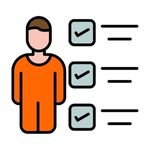
Understand the Stricter Lending Criteria
Be aware that lenders typically apply stricter financial checks when you’re purchasing a second property. This includes a closer look at your credit record, income stability, and existing debts.
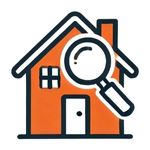
Start Your Property Search
Work with a registered estate agent to find a suitable second property. Ensure the agent is experienced in dealing with clients who are adding to their property portfolio.
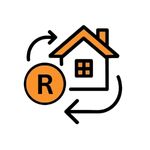
Submit an Offer to Purchase (OTP)
Once you’ve found the right property, submit a legally binding Offer to Purchase (OTP). This document should clearly state your proposed purchase price, payment structure, and any suspensive conditions. Always include a clause making the sale subject to bond approval, even if you are confident about financing.

Apply for a Home Loan Immediately
Once the OTP is signed by the seller, submit your home loan application without delay. Second property loans often come with stricter requirements, so early application helps avoid unnecessary delays.

Prepare for a Higher Deposit Requirement
Expect to provide a larger deposit than for your first home. While a 10 percent deposit may have sufficed previously, banks often require 20 to 30 percent upfront for second properties.

Compare Interest Rates
Banks may offer slightly higher interest rates on second property loans compared to loans for primary residences. The difference can range between 0.5 to 1 percent, depending on your risk profile and the lender’s terms.
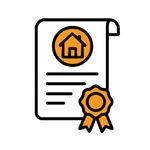
Finalise Legal and Transfer Processes
Once your loan is approved, the usual legal processes follow: signing bond documents, property registration, and transfer. Be prepared for additional costs such as transfer duty, legal fees, and bond registration charges.
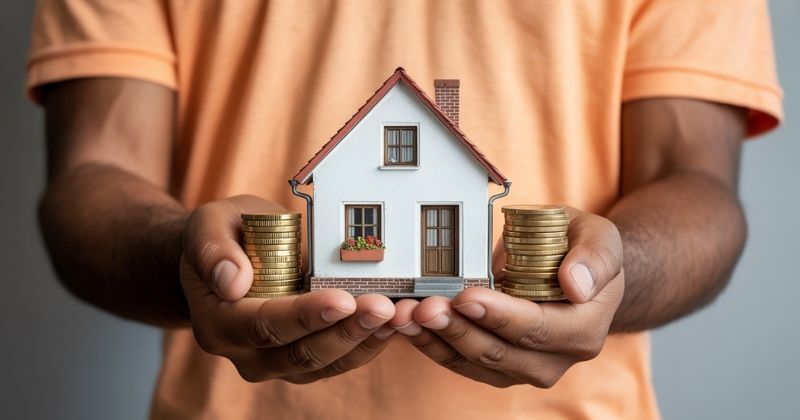
Financing Options for Second Property Buyers
Buying a second property in South Africa can be financed in several ways. These include accessing equity from your current home, applying for a new bond, or exploring alternative loan options. Understanding these choices will help you decide which suits your financial situation best.
Cash
If you have sufficient spare cash, you can purchase the property outright.
Second Bond Using Home Equity
A second bond allows you to raise funds against the equity in your existing property. If your home is valued at R2 million and you owe R1 million, you may access part of the remaining equity. Lenders often allow up to 80 or 90 percent of the property’s value. You’ll need a valuation, and the bank will reassess your financial position. Bond registration and Deeds Office fees will apply, just like with your first purchase.
Access Bond (Flexible Home Loan Facility)
An access bond lets you deposit extra funds into your home loan account and withdraw them later when needed. Surplus payments reduce your loan balance and interest charged, as interest is calculated daily. This can be a convenient way to fund a deposit without taking out a new loan. Some banks may charge administrative fees or limit withdrawals, and the interest rate may be slightly higher than standard home loans.
Bridging or Interim Finance
Bridging finance provides short-term funds to cover expenses before selling another property or securing permanent finance. These loans are typically more expensive than bonds, with higher interest rates and lower loan limits. They are offered by specialist lenders and should be used cautiously due to their short repayment terms and added costs.
Personal Loan for Deposit
A personal loan may be used to cover a deposit if you don’t have immediate access to savings or equity. However, these loans come with higher interest rates and shorter repayment terms. They also increase your debt burden, which may affect your ability to qualify for a second bond. This option should only be considered when more affordable alternatives are unavailable.
Conclusion
Buying a second property in South Africa can be a practical step towards financial growth, whether you’re building a rental portfolio, preparing for retirement, or securing a holiday retreat. While the process mirrors your first purchase legally, the financial requirements are more demanding. Lenders expect stronger credit records, larger deposits, and evidence of sustainable income. Planning ahead, understanding your financing options, and knowing the true cost of ownership are essential before making this commitment. With careful preparation, a second property can be a valuable long-term asset.
Frequently Asked Questions
Yes, it is possible to qualify, but the bank will reassess your affordability based on both bond payments. Your debt-to-income ratio must remain within the acceptable range, usually under 30 percent including all housing debt.
Most banks require a larger deposit for second properties compared to first-time purchases. You may need to pay between 20 to 30 percent upfront, depending on your credit profile and the lender’s policy.
In some cases, yes. If you already earn rental income or intend to rent out the second property, banks may factor this into your affordability. However, they usually require signed lease agreements or reliable income projections.
They can be slightly higher. Lenders may charge 0.5 to 1 percent more than standard primary residence rates, especially if they view the second property as a higher risk or investment purchase.
This depends on your long-term plans. Buying in your personal name may offer simplicity and lower administrative costs. However, if you plan to build a portfolio, a company or trust structure may provide tax or asset protection benefits. Always seek advice from a tax professional before deciding.
Fast, uncomplicated, and trustworthy loan comparisons
At Arcadia Finance, you can compare loan offers from multiple lenders with no obligation and free of charge. Get a clear overview of your options and choose the best deal for you.
Fill out our form today to easily compare interest rates from 19 banks and find the right loan for you.



